by Christine Pesta
Many people have questions about veganism. Even those who have been vegan for a time may come across a situation that may prove to be a gray area, and they may also be uncertain as to the answer to the question they are facing.
In hopes of helping to answer some of those questions people may have when first thinking about becoming vegan, when getting your bearings as a novice, or even if you’ve been enjoying the lifestyle for a while, but then encounter a situation that leaves you perplexed as to the correct handling of it, here are some answers and guidelines to make your life a little easier.
Veganism is not just about what you eat, but how you live, and what care you give to not just yourself, but to the planet, and every living creature on it. Below are some common questions regarding the vegan lifestyle that should be able to help guide you along your journey to a better quality of life.
1.) What do vegans eat?
This might be considered the most obvious first question. The most obvious answer would be: everything non-vegans eat except any part or product of an animal, including
meat, eggs, dairy, and honey. While that might sum it all up, some may still have questions about “replacements” for those items. There are many items in supermarkets these days that serve to replace those things a vegan has given up that are plant-based. Whether it is a burger, or even an omelet, there are pre-made foods or alternate ingredients that can be used. Vegan foods can mimic the taste and texture of just about any non-vegan food; the only difference is, no animals are harmed in the preparation of a vegan meal.
2.) Where do vegans get their protein?
Another of the most common questions vegans receive. The fact of the matter is, plants have protein. It may be hard for some to believe, but the broccoli on your plate or the spinach or avocado in your sandwich has protein. With black beans at 15 grams per cup of protein, and lentils at 18 grams per cup, they serve as just two examples of plants with more protein per serving than meat. In fact, here are just a few more examples of plant sources of protein: nuts and seeds, beans and legumes, nut butters, seitan, tempeh, tofu, soy milk, almond milk, cashew milk, kale, collard greens, spinach, and Swiss chard.

3.) Do animals really feel pain?
Mammals, birds, fish and crustaceans, reptiles, and insects feel pain. Any creature with a central nervous system is going to feel the effects of personal, physical harm. What’s more, it shouldn’t be any surprise to know that it’s not just humans that can experience emotional pain and stress, as well as mental illness. Many creatures of the Earth will cry, howl, or scream when in pain, and even produce tears. They can also feel the anguish of grief at the loss of one close to them. Many animals have also been observed to mentally deteriorate living under conditions such as being confined to the limited spaces of places like zoos, labs, or factory farms. To believe the marketing gimmicks used of the farm industry, is what leads people to believe that butter and eggs are produced without the suffering of animals, and worst of all: that animals are somehow “humanely” killed. There is no difference when it comes to pain between the human and the non-human species of this planet. From the knife at the cow’s throat, to the bullet in the stag’s side, to the hook in the mouth of a fish; all feel pain, and all that die due to the exploitation of man usually do so in the most cruel and painful of ways. Animal abuse and exploitation are things that vegans are very much against because they are aware of, and sensitive to, the pain and suffering of all of Earth’s inhabitants. Eating and living ethically and sustainably is the lifestyle that many vegans choose, in order to do their part as custodians of the planet.
4.) Is a vegan diet healthier?
Let’s be clear: a vegan diet can be healthier. However, the definition of vegan, when referring to diet, means a person who does not consume, meat, eggs, dairy, or honey (or any part or product of a living – or once living – creature). So long as those things are omitted from a person’s diet, they are vegan – that doesn’t mean that they are eating in a healthy manner.
There are those, popularly termed, “junk food vegans”, who don’t necessarily eat the most nutritious diet, yet are just as much vegan as any other. As a vegan, you can grab an apple for a snack, or a bag of potato chips – the choice is yours. Of course, that choice will dictate just how healthy you are.
For the most part, vegans are health-conscious and make sure that their diet consists of the proper nutrients, derived from plant materials. Many professional athlete’s are vegan and many have attributed an increase in strength, speed, and agility to a diet that focuses on plants rather than meat for protein intake.
5.) What about the variety of foods?
There is no end to the variety of food available to vegans! All of the aromas, tastes, and textures you are used to experiencing, you can still experience on a vegan diet. There are soups and salads, as one might expect, and even vegan burgers and hot dogs are more commonplace now. But not everyone expects to hear that you can find vegan versions of things like: gyros, sushi, lasagna, tacos, pizza, ice cream, yogurt, cheese, meatloaf, stir fry, fish and chips, bacon, sausage, pepperoni, fried chicken, and steak. The only difference between the vegan and non-vegan versions of most food is that the vegan version is generally more nutritious. It all pretty much looks, tastes and smells just like the, “real thing”.
Then, of course, there are those foods that are the “real thing”. Whole foods such as vegetables, fruits, grains, beans, legumes, nuts, and seeds go to make up most of a vegan’s diet. Among those there is seemingly endless variety. Whether alone, or in an infinite number of combinations, the wide variety of food available to vegans ensures that they’ll never get bored!
6.) Isn’t vegan food expensive and hard to find?
With veganism catching on in popularity over the last few years, the demand for more vegan products has made them much more common and widely accessible. As a result of more vegan products on the shelves, competing brands are beginning to lower the general prices of many vegan food items. While a carton of almond or oat milk may cost a little more than dairy milk, it is less than it was a few years ago. In fact, aside from some vegan dairy products, and some prepared and frozen products, most foods are quite cheap. Pasta, beans, rice, potatoes, apples, bananas, lettuce, tomatoes, tofu, oatmeal, and bread are all examples of the many foods that are budget-friendly, and can be purchased just about anywhere.

7.) Why isn’t honey considered vegan?
Most vegans, particularly ethical vegans, consider honey to be a product derived from the labor of bees. Therefore, they consider it unethical and exploitative to consume honey. Within the vegan community, there are those who consider the matter to be more of a grey area. While a relatively small percentage, there are those vegans that eat honey. Bees produce and store honey to feed themselves and to ensure that they have a source of food throughout the winter months. The treatment of queen bees by some beekeepers is another reason that consuming honey is unthinkable to vegans.
8.) Do vegans really think they can make a difference with animal rights and climate issues?
There are those who come to the vegan lifestyle for ethical or environmental reasons. As the world grapples with the growing effects of global warming, and the continued exploitation and abuse of animals, Many around the world feel that even the smallest contribution to trying to save the planet and its inhabitants, multiplied by millions also making even the smallest contribution, can be very effective in the fight for animal rights and the battle against climate change.

9.) Why don’t vegans wear wool or silk?
While the reasons for not wearing fur or leather as a vegan are pretty obvious, many people are not aware that fabrics such as wool and silk are avoided by vegans as well. For vegans, sheep are exploited like many other farm animals. Raised mostly for their wool, they are many times kept under poor conditions and often cruelly treated during the shearing process, with the sheep more often than not suffering injuries that are sometimes fatal.
Where silk is arguably the most beautiful looking fabric, the process by which it is made is very ugly. Silk farmers boil the silkworm in its cocoon to ensure that they obtain the smoothest silk.
This doesn’t mean that vegans cannot be warm or stylish when it comes to clothing. There are vegan alternatives to wool, silk, and leather for those who are ethically and environmentally conscious.










